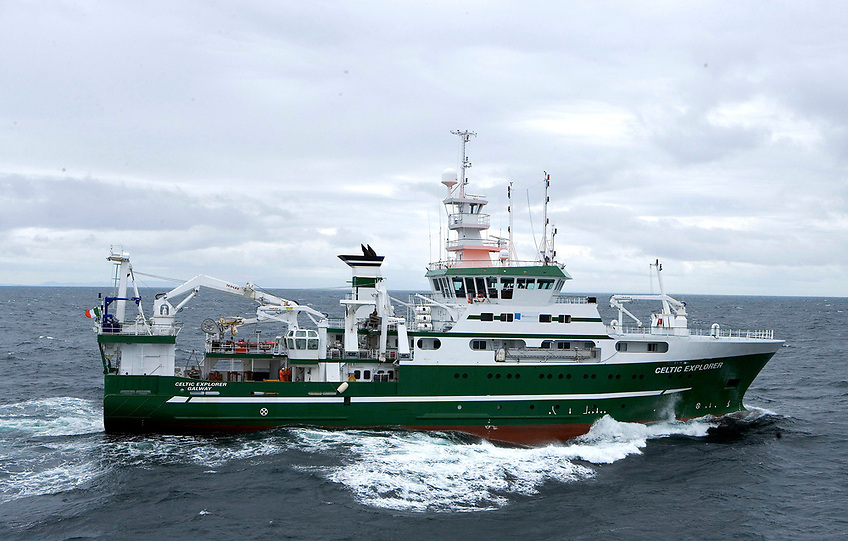Three experts have rated Government progress on climate and environment as a “C”, which is down from last year’s “C+” score.
The water and marine category is rated as “poor”, and rated 4.5 out of 10 compared to 5.5 in 2021.
It is one of nine categories assessed by the team, chaired by Dr Cara Augustenborg from University College Dublin, and involving Dr Paul Deane from University College Cork, and Dr Diarmuid Torney from Dublin City University.
 Dr Diarmuid Torney from Dublin City University
Dr Diarmuid Torney from Dublin City University
 Dr Cara Augustenborg from University College Dublin
Dr Cara Augustenborg from University College Dublin
 Dr Paul Deane from University College Cork
Dr Paul Deane from University College Cork
The assessment of the Government’s performance in relation to its Climate Action Plan commitments was commissioned by Friends of the Earth which states it had no role in deciding the results.
The expert team says that the overall grade “reflects a significant drop in the scores for some area with improvements in other areas”.
The Government’s score on the climate category dropped from 7.5 to 6, on energy from 6 to 4 and on water from 5.5 to 4.5, while the score on nature and biodiversity jumped from 4.5 to 6.5 and transport edged up from 6.5 to 7.
High scores for progress on waste (8.5) and air quality (7) were maintained, while the poor score on agriculture (4) did not improve, it says.
“At this stage in the Government’s tenure, we would expect to see them move from planning to implementation of their commitments, ”the team says.
“However, in these areas specifically, we observed a concerning lack of progress turning the Government’s own ambitions into actions at the required pace,” it says.
“The Government’s performance to date on their own environmental commitments is a truly mixed bag,” Dr Augustenborg says.
“ While it was uplifting to see significant progress in the area of nature and biodiversity and a policy shift to more active modes of transport, the lack of effort to address water quality was deeply concerning,”she says.
“In addition, significant delays on commitments in the energy and agricultural sectors leads to the risk of not meeting our climate targets in the future,”she says.
“ It’s clear that climate change, biodiversity loss, and water quality continue to worsen. While this Government has made progress in some areas, their pace does not align with Ireland’s deteriorating environmental conditions,” she adds.
“Of all the options open to the Irish government, delay wasn’t one of them,” Dr Deane says.
“ There is a mismatch between climate ambition and action in Ireland with policy moving at a speed that is both at odds with the existing climate crisis and overlapping fossil fuel energy crisis,” he says.
Dr Diarmuid Torney said: “two years into a government’s term in office, I would expect to see clear progression from vision and ambition to detailed implementation”.
“We have had no shortage of vision and ambition, but not nearly enough implementation overall,” he says.
“ There has been good progress in some areas, particularly nature and biodiversity, and transport, but a notable lack of action in other areas, particularly energy, agriculture and water,”he says.
Friends of the Earth chief executive Oisín Coghlan says he could sum up the assessment as “could do better” on the Government’s part.
“ To extend the school report analogy the Government is attentive in class and is quick to put their hand up but that isn’t reflected in their actual results,”Coghlan says.
“In short, we are in a climate and energy emergency and the Government have to start acting like it. They did it for Covid and Ukraine but they just aren’t doing it for climate,”he says.
“Over the coming months, the key tests include the new Climate Action Plan, the fossil energy price crisis and the Citizens’ Assembly on biodiversity,” he says.
“On climate, the Government must immediately turn the new sectoral pollution limits into policies and measures that actually reduce emissions with an updated Action Plan due in November,” Coghlan says.
“They must stand up to fossil fuel interests who are pushing them to address the fossil fuel energy price crisis by locking us into more fossil fuels,”Coghlan continues.
“Instead of embracing this climate-wrecking false solution, the Government must proactively help people save energy and money with retrofitting and active travel, prioritising and protecting those in energy poverty,”he says.
The experts’ assessment of progress in the nine different areas can be read in the full report card, which can be downloaded below































































